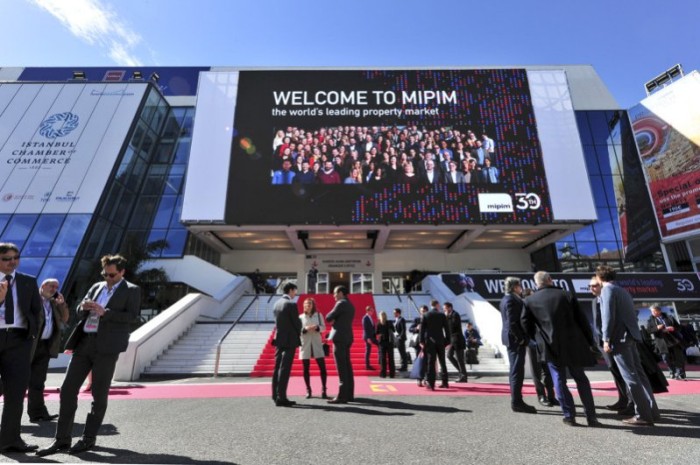What is digital inclusion and why is it important in 2022?
Smart Places are growing in importance, using innovative communications and the Internet of Things (IoT) technology to improve people’s everyday lives. Adopting a user-centred approach and prioritising the needs of your customers, the tenants, employees, and consumers who use your spaces is vital to developing Smart Places.
From construction companies to building management companies to local governments, all those involved in developing Smart Places have a major role to play in making a more digitally inclusive society. Through their operations, they can have a major impact on the services and technologies that are available where people live, work and visit.
Most people expect to access high-speed broadband at home, use mobile technology anywhere they travel and adopt the latest digital tech at their workplace. But the shocking reality is this is not the case, even in 2022.
New research highlights inequalities that prove a clear link between poverty and digital exclusion as millions of people, young and old, cannot afford to access the latest digital innovations [1]. The COVID-19 pandemic has only exacerbated this problem. As home working and studying increased, the impact of digital exclusion became more pronounced, affecting the life chances of millions of people.
The development of Smart Places can address this issue by making the new building developments digitally inclusive and accessible. Accessibility and inclusiveness cover various issues in this context; encompassing poverty, an ageing population and physical and mental health.
| “The key to developing Smart Places is to fully understand the needs of the end-user so that they get an exceptional experience. There is now a vast amount of data that can be captured and used to enable personalisation of those experiences to deliver increased value for clients and their customers”
– James Hall Executive Engagement Director, Monstarlab UK |
In this next section, we will discuss three key societal challenges that are taking place across the places we live, work and visit right now. We understand that the list of challenges and user bases is extensive and these are just three ways, of many, which Smart Places could create groundbreaking user experiences.
At Monstarlab, we have significant experience and expertise in forming partnerships with global brands to create Smart Places. Building them is challenging and complex, and it takes a diverse range of functionality to enable everyone to access them.
Create smarter residential places to support people living in digital poverty
The evolution of technology in homes and workplaces over the past few years has been transformative. From the ability to regulate internal temperatures to answering the door remotely, innovation keeps coming.
Unfortunately, not everyone benefits from these technological enhancements. To use the UK as an example, when the COVID-19 pandemic began in 2020, the introduction of home learning and remote working exposed a lesser-known equality among the British public. It is estimated that 10% of households are classified as being in digital poverty [2]. For those who live in social housing, the challenge is almost insurmountable, as financial constraints make it difficult for them to access broadband and benefit from having a smarter home.
Several organisations sought to solve this problem during the pandemic. The public donated spare laptops to school children studying at home and social housing providers offered free broadband access [3]. But if we are to create truly smart places, should online access become a standard offering? [4] Enabling residential communities to access digital services boosts their chances of social mobility, improves their quality of life, and creates happier customers.
Create smarter workplaces to support an ageing population
Healthcare improvements have raised life expectancies in the UK. Alongside the rise in state pension age, the country’s workforce has also grown older. Their knowledge and experience benefits employers, but also creates challenges. Workplaces need to evolve to meet the needs and rights of older workers as enshrined in the 2010 Equality Act, and employers can benefit by acting now to create digital working environments for all [5].
Examples of intuitive digital applications accessible to a diverse range of users include technology-powered furniture and flexible working arrangements. Introducing real-time desk and meeting space availability allows office space to be easily planned and accessed. Investing in digital innovation improves employees’ physical and mental well-being, resulting in increased productivity and a happier workforce [6].
Create smarter commercial places to support people with physical and mental health conditions
More commercial spaces are investing in digital infrastructure to become smarter. This benefits all society, especially people with physical and mental health conditions. Voice command technology and the use of mobile apps to workspace management are just some ways of creating more inclusive and smarter spaces that benefit end-users.
Creating applications for mobile devices with pre-set accessibility embedded in the hardware, for instance, through a screen reader, enables easily consumable, accessible information to be delivered to individuals [7]. Creating more intelligent spaces which provide consumers with different methods of sourcing information in a timely and accessible manner gives them a better customer experience.
What you can do next.
The priority is to consider the needs of your customers, the tenants, employees, and consumers who use your spaces. At Monstarlab, we are passionate about collaborating with our clients to create solutions that meet their business goals, while delivering exceptional customer experiences.
Get in touch and talk to us about how we can work in partnership to create truly Smart Places for you and your customers.
To download this report as a PDF click here.
Looking for more information?
You can read more expert insights on Smart Places in our Why Agility Must Be Part of the Agenda for Smart Places Development and Smarter Spaces: Existing Infrastructures Made More Sustainable pieces.
You can also visit our Smart Places page to learn more or download our case study compilation here.
Meet our Expert

James Hall | Executive Engagement Director & Smart Places Lead
Connect on LinkedIn | james.hall@monstar-lab.com
James Hall is one of the Executive Engagement Directors at Monstarlab UK. James is a creative digital leader with 25+ years of experience in strategy, innovation, service and experience transformation. He leads our growth function in the UK and also heads our Newcastle office. He is passionate about using technology and the latest market thinking to create solutions that transform experiences; delivering value for clients, their customers and employees, and society. He has worked across a range of clients in banking, customer service, utilities, manufacturing and government, and has a particular specialisation in Smart Places.
Learn more about Monstarlab United Kingdom.
Endnotes:
[1] Holmes & Burgess, “Digital Divide”, 2021
[2] NHS, “what we mean by digital inclusion”, 2021
[3] Inside Housing, “The pandemic highlighted how digital inclusion can exacerbate inequalities: how can landlords address this?”, 2021
[4] Landlord Broadband, “Should Housing Associations Provide Internet Access for Social Housing Tenants?”, 2021
[5] UK GOV, “Equality Act 2010”, 2010
[6] International Longevity Centre UK, “Work for Tomorrow Consultation Paper”, 2020
[7] Scope, “Phone accessibility settings”, 2021




